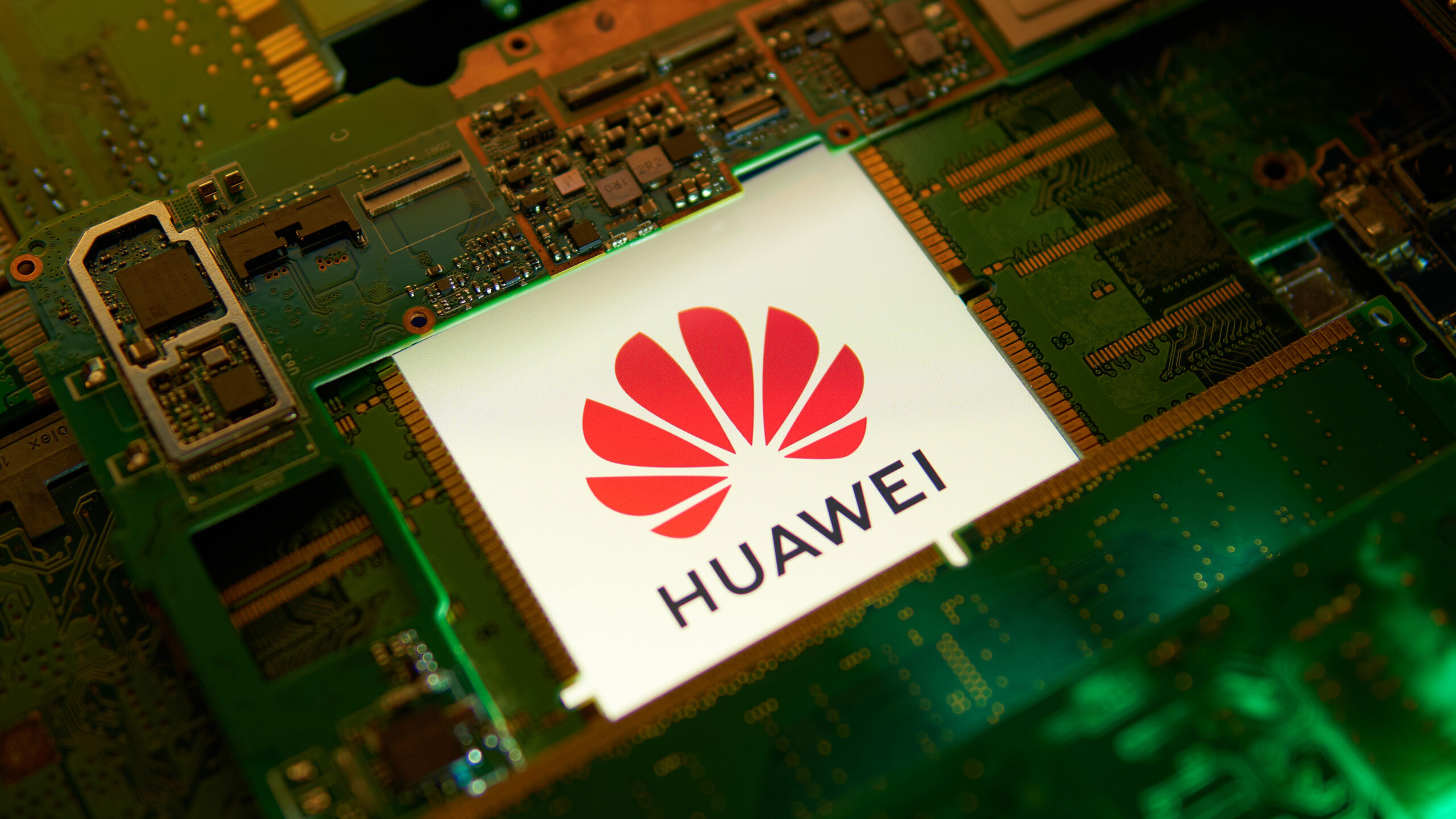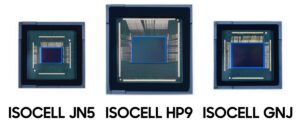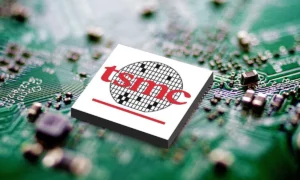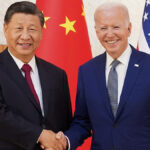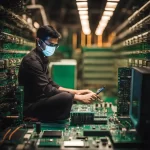Introduction:
Huawei, a global leader in telecommunications and technology, has embarked on a significant endeavor by committing $1.66 billion to develop advanced chipmaking capabilities.
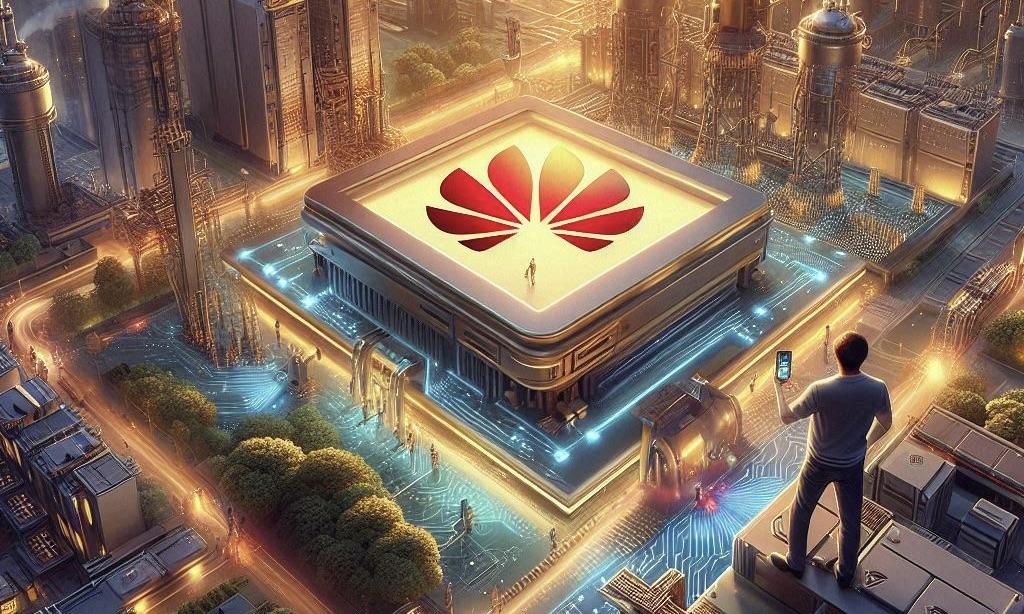
This strategic move is aimed at overcoming stringent US sanctions that restrict Huawei’s access to cutting-edge chipmaking technologies beyond 5nm processes.
Background on Huawei’s Chipmaking Challenges:
Huawei has encountered significant obstacles in advancing its chipmaking capabilities due to strict US sanctions. These sanctions prevent Huawei from accessing cutting-edge semiconductor manufacturing technologies.
As a result, Huawei is limited to producing chips no more advanced than the 5nm process node. This restriction poses challenges for Huawei’s competitiveness in critical sectors like AI and telecommunications.
To overcome these hurdles, Huawei has invested heavily in developing its own advanced chipmaking machinery. This investment aims to bolster Huawei’s self-reliance in semiconductor technology amid geopolitical tensions.
The company is constructing an R&D facility near Shanghai dedicated to this endeavor. Partnering with SMIC, Huawei continues efforts to manufacture 5nm chips, but newer technologies remain out of reach.
Despite these challenges, Huawei’s commitment underscores its strategic resilience and determination to innovate in the face of adversity.
This strategic imperative underscore Huawei’s resilience and determination to secure its technological future amidst regulatory uncertainties and global economic dynamics.
Read More: 6 Reasons Why Nvidia Overtook Apple as World’s Second Most Valuable Company – techovedas
Why Huawei is Making Big Investment?
There are two main reasons why Huawei is making this big investment in advanced chipmaking:
US Restrictions: In 2019, the US placed Huawei on an “entity list” which restricts them from buying certain American-made technologies and components, including advanced chips. This crippled Huawei’s smartphone business as they relied on US chipmakers for some of their most powerful processors.
By developing their own chipmaking capabilities, Huawei aims to become independent of US technology and avoid future disruptions caused by similar restrictions.
Self-Sufficiency and Global Competition: Beyond the immediate issue of US sanctions, China as a whole is pushing for greater self-sufficiency in key technologies like semiconductors. This is driven by a desire to reduce reliance on foreign companies and to become a leader in chip development and production.
Owning advanced chipmaking technology would be a major step towards this goal, allowing Huawei to not only secure its own supply chain but potentially compete more effectively in the global market.
Details of Huawei’s Investment:
R&D Focus: Huawei’s substantial investment will fund an R&D facility located near Shanghai, dedicated to advancing chipmaking technologies. The focus includes developing lithography and semiconductor manufacturing equipment comparable to industry leaders.
Strategic Importance: This investment underscores Huawei’s strategic intent to achieve technological self-sufficiency and reduce dependence on external suppliers, thus safeguarding its operations against geopolitical uncertainties.
Partnerships and Developments: Huawei continues its collaboration with Semiconductor Manufacturing International Corporation (SMIC) to produce 7nm chips and is actively working towards manufacturing 5nm processors independently.
Importance of Huawei’s Investment:
Technological Sovereignty: By developing indigenous chipmaking capabilities, Huawei aims to secure its technological sovereignty. This move is critical for sustaining its operations, enhancing resilience against geopolitical pressures, and fostering long-term innovation.
Market Competitiveness: Building proprietary chipmaking technologies could potentially mitigate Huawei’s reliance on Western suppliers and strengthen its competitive edge in global markets, particularly in sectors requiring advanced semiconductor solutions.
Global Implications: Huawei’s investment reflects its determination to navigate complex regulatory landscapes and maintain leadership in critical technology sectors. It also highlights China’s broader strategic initiatives to bolster domestic technological capabilities amid global economic uncertainties.
Read More: 7 Exciting Technology Products From CES 2024 – techovedas
Challenges and Future Prospects:
Technological Challenges: Developing advanced chipmaking machinery independently poses significant technical challenges, including precision engineering and semiconductor materials innovation.
Regulatory Landscape: Ongoing regulatory developments and international trade policies continue to influence Huawei’s ability to access key technologies and markets.
Innovation Roadmap: Future steps may involve scaling up production capabilities, integrating AI-driven technologies in chip design, and exploring novel applications of semiconductor materials to maintain competitive advantage.
Follow us on Linkedin for everything around Semiconductors & AI
Conclusion:
Huawei’s $1.66 billion investment in advanced chipmaking signifies a strategic shift towards technological self-reliance amidst geopolitical tensions. By prioritizing innovation and substantial R&D investments, Huawei aims not only to overcome current regulatory challenges but also to shape the future of global semiconductor technology. This initiative underscores Huawei’s commitment to resilience, innovation, and sustainable growth in an increasingly interconnected and competitive global market.

